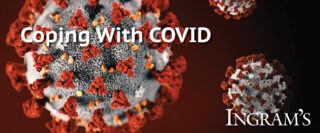HOME | ABOUT US | MEDIA KIT | CONTACT US | INQUIRE
HOME | ABOUT US | MEDIA KIT | CONTACT US | INQUIRE
In Missouri stay-at-home orders have been lifted, with local exceptions throughout the state including in the Kansas City metro. Over the last several days, the state and surrounding Kansas City region has seen a growing number of new cases.

State health officials had said earlier to expect higher confirmed cases of COVID-19 as more testing becomes available. Now, some health experts are providing another cause for the rise, saying that as closures continue, it is becoming more common for people to have “social distancing fatigue,” according to reporting by 41 Action News.
“Unfortunately, the fatigue is real and people can only hear it so long until they just start to not hear it anymore,” Juliann Van Liew, director of public health for the Unified Government Public Health Department said in a report by 41 Action News.
After weeks of stay-at-home orders, it seems people tossed social distancing and mask wearing to the side, Van Liew said to 41 Action News.
“Our numbers are really going in the wrong direction, and so we’re trying to kind of come back to the community and ask for them to buy into this again with us,” Van Liew said. “Our rates of infection and just our number of cases remain higher than just about everybody else’s in the metro, despite our best efforts.”
Monty Miller with Saint Luke’s Health System showed that fatigue due to quarantine is being felt in many other places as well.
“People are really frustrated with the whole thing,” Miller said to 41 Action News.
Some of the worst symptoms to come out of the prolonged shutdown have included anxiety and depression.
The loss of a routine and human interaction are what’s causing anxiety and depression in many, and taking things one day at a time can help, Miller said. “Just take it one day at a time; don’t look way down the road because we’re going to create what we call ‘anticipatory anxiety,'” he said. “We’ll worry about a lot of things that haven’t happened yet.”